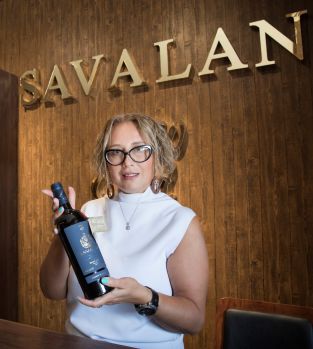In 2002 I found myself at the centre of the development of wine culture in Azerbaijan. Although to say that there was one would be wrong – people were mainly drinking semi-dry, semi-sweet and fortified wines. Since the Soviet time, Azerbaijani wine has had the reputation of being cheap and low in quality: sweet or sweet and strong, no-frills, and inexpensive.
But now, in Azerbaijan decent and in some cases very good wine is being made. What’s happened? The oil boom helped. Money appeared in the country, people began to go to expensive restaurants and drink expensive wine. On the other hand, lots of foreign specialists came to Azerbaijan and preferred drinking wine to strong alcohol. From these two polar sources, interest in good wine began to grow. And there was a third factor: many Azerbaijanis began to travel more to European countries, where wine culture is part of everyday life. Wine rooms began to open in Baku and their choice improved over the years, and the question just hung in the air: why are we a country that grows vines but not making any good wines?
In the mid-2000s new vineyards began to be planted and new wineries were built. And following this large, old factories began working on the quality of the wine, rather than just the quantity. And since 2007 our company began constructing vineyards taking into account the local climate and geography, and with the philosophy of reviving local grape types. And then, through persistent work, we managed to grow some good and recognizable lines with a quiet harmony of tastes. They include monosort wines (Chardonnay, Vermentino, Sauvignon Blanc, Sappers, Pinot Noir), and two (red and white) assemblages.
In today’s world there’s an overproduction of wine, and therefore it won’t be easy for Azerbaijan’s new wines to find their buyer. Some can compete with wine from other countries in the Chinese or Russian markets, for example, by having a better price to quality ratio. And others will find a niche and also have a chance at gaining recognition – due to the growing interest of connoisseurs in original wines unlike the middle-of-the-road supermarket product; in wine with history which tells stories unlike the others.
Who would have known back then that in 10 years’ time Savalan’s wines would be represented in 20 Michelin-starred restaurants in Europe and that the well-known sommelier Eric Beaumard would choose Savalan Petit Verdot for his collection of 50,000 at the Fourseasons in Paris? So, every year the situation in Azerbaijan is changing for the better and I hope soon people will be speaking about our wines as “the great wines of Azerbaijan”!




